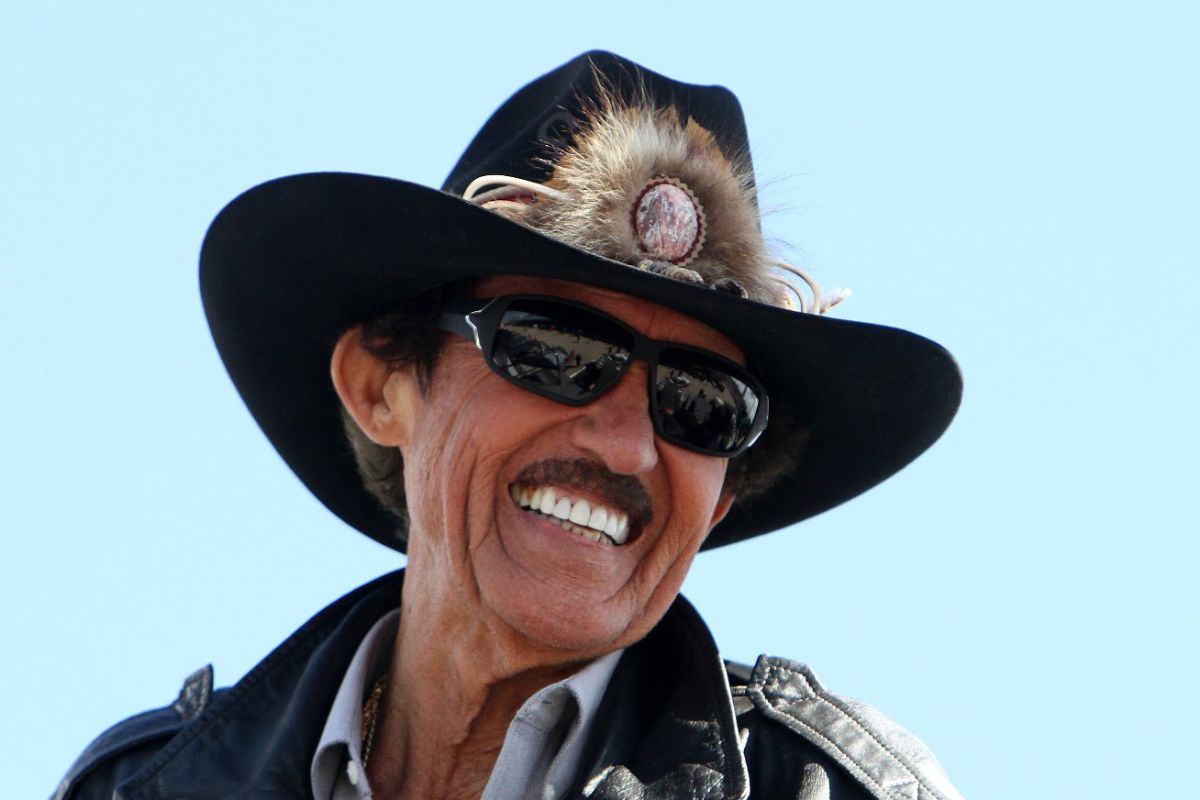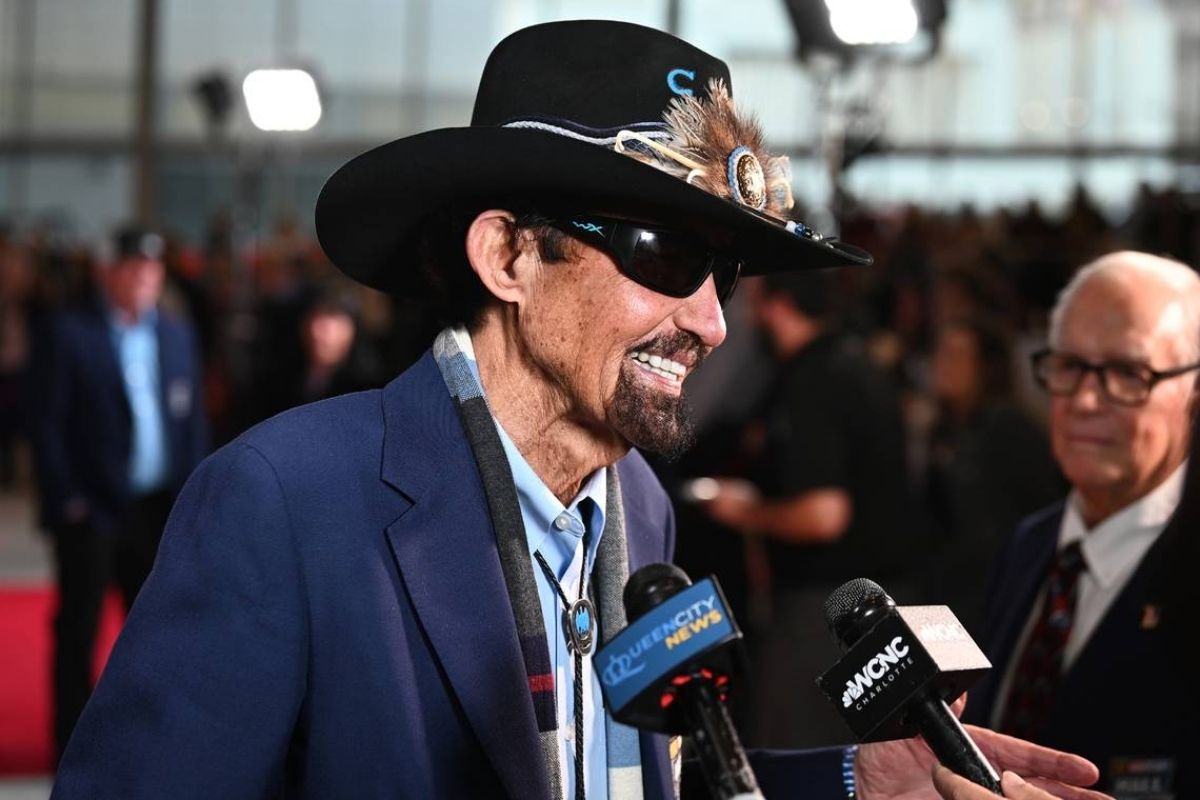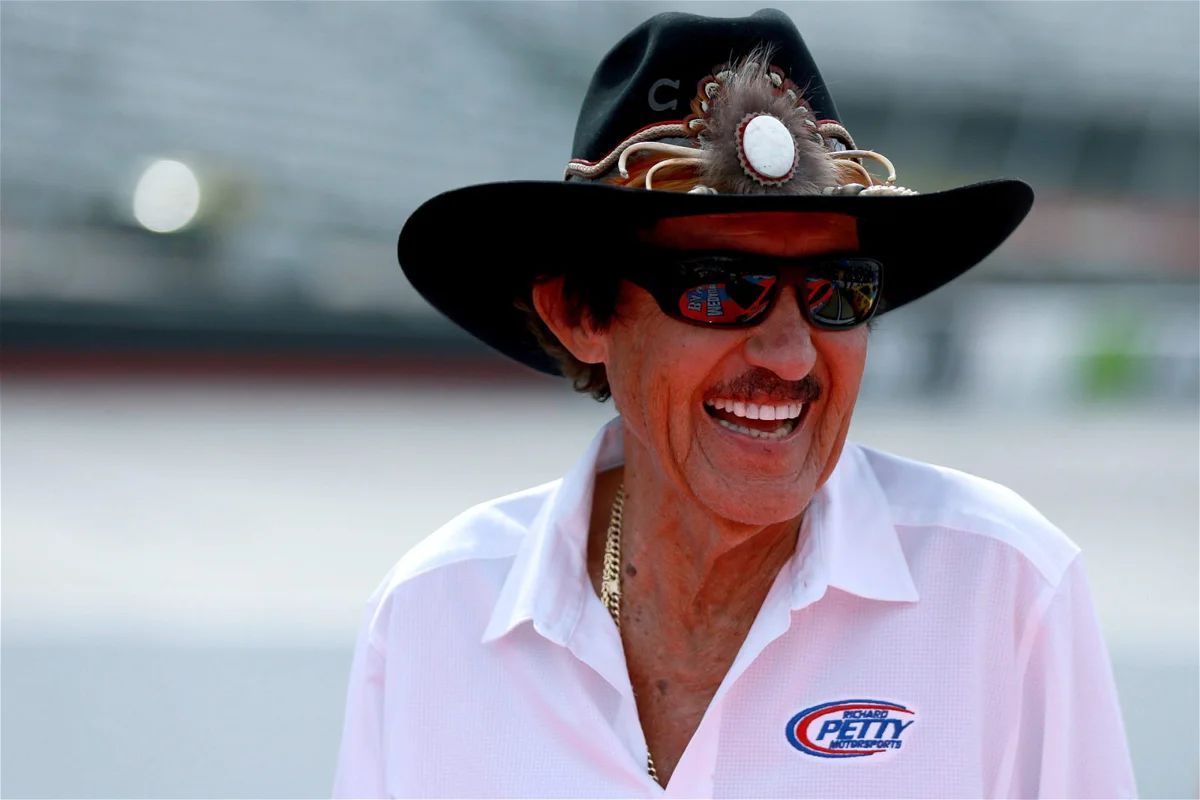Richard Petty Criticizes Next-Gen Parity: In an era where NASCAR is increasingly gravitating towards parity among its teams and drivers, the criticism from Richard Petty, a titan of the sport, invites a thoughtful examination of the direction in which stock car racing is headed. Petty’s assertions, deeply rooted in the golden age of racing, challenge the current ethos by advocating for an environment where innovation and driver skill are dominant. This perspective not only invites a re-evaluation of NASCAR’s parity policy but also raises fundamental questions about the essence of competitive racing.
Key Takeaways
- Richard Petty criticizes NASCAR’s push for consistency, longing for the era of skill and innovation dominance.
- Petty believes current regulations stifle team creativity and driver talent.
- Calls for a balance between competitive racing and allowing for individual brilliance.
- Suggests revising rules to encourage technological innovation and driver skill.
- Demand for NASCAR to invest in talent development and reward engineering excellence.
NASCAR’s Parity Policy Faces Criticism
NASCAR’s initiative to guarantee parity among its race cars has ignited a wave of criticism, highlighting a growing uneasiness within the racing community over the effectiveness of these measures. Despite the organization’s intentions to level the competitive field, the aftermath of the recent Martinsville race has emphasized a significant dissatisfaction that transcends mere competitive rivalry, touching on fundamental aspects of the sport’s identity and future direction.
The controversy centers on the perceived failure of NASCAR’s parity policies to deliver on their promise. Critics argue that instead of fostering a more competitive and unpredictable racing environment, these measures have recklessly stifled individual talent and team innovation. As a result, everyone aiming for similar performance has made races seem more even, but it takes away from what makes the sport special: the mix of speed, smart moves, and top-notch machinery.
Moreover, the discontent reflects deeper concerns about the balance between regulation and freedom within the sport. The strict parity measures, while aimed at fairness, may be constraining the very elements that have traditionally defined NASCAR’s appeal. This includes the capacity for teams and drivers to leverage their unique strengths and creative strategies to gain a competitive edge.

Richard Petty’s Perspective: Remembering Racing’s Golden Age
Reflecting on the evolution of motorsports, Richard Petty nostalgically critiques the shift towards parity in NASCAR, showing a profound departure from the 1970s era of racing that celebrated driver skill and mechanical innovation. Petty’s perspective brings to light an era where the essence of racing was rooted in the raw competition between drivers and the ingenuity of their teams, a clear contrast to the current landscape that seeks to level the playing field through stringent regulations.
Petty’s critique is not merely a longing for the past but a clever observation on the fundamental changes in NASCAR’s approach to competition. The 1970s were defined by fierce rivalries that were as much a product of personal skill as they were of mechanical prowess. Drivers were celebrated for their unique abilities to push their machines to the limit, and teams were recognized for their innovative solutions to engineering challenges.
In contrast, the modern emphasis on parity seeks to minimize these individual advantages in favor of a more uniform competition. While this approach has its merits in creating a closer and possibly more unpredictable race, Petty suggests that it also dilutes the essence of what made NASCAR captivating. The shift towards parity, according to Petty, risks overshadowing the individual talents of drivers and the creative ingenuity of teams, elements that once defined the golden age of racing.
“Probably, early mid-70s, driving a bunch of races with this car, and had a lot of experience with it. Got to run it like 4-5 years, hear me? Of all the race cars I’ve ever had, it was the most natural race car. That was before all the wind tunnel testing and all these kinds of stuff…It was just a pleasure to drive it. It worked on short tracks, road courses, superspeedways, good all around. Best race car I’ve ever had.” – (Richard)
Insights from Kyle Petty: Challenging Modern Racing Norms
Building on Richard Petty’s critique of modern NASCAR, his son Kyle Petty offers a pointed analysis of how current regulations impact the sport, particularly in stifling team innovation and diminishing driver skill. Kyle Petty, leveraging his extensive experience as a driver and commentator, articulates concerns that today’s NASCAR landscape, with its stringent adherence to parity, accidentally levels the playing field to a fault. This homogenization, he argues, not only detracts from the spectacle of racing but also diminishes the very essence of competition which historically has been about engineering ingenuity as much as about driving prowess.
Petty’s critique highlights fundamental tension within NASCAR between the desire for a competitive balance and the need to foster an environment where excellence can thrive, unloaded by overly prescriptive regulations. He points out that the current rules regime, by prioritizing parity, effectively caps the potential for teams to innovate and for drivers to distinguish themselves through superior skill. This, according to Petty, dilutes the brand of NASCAR by making races more predictable and less reflective of the individual talents and team strategies that have traditionally fueled the sport’s narrative and appeal.
Furthermore, Kyle Petty suggests that this approach to regulation not only impacts the competitiveness of the sport but also its long-term sustainability. By discouraging innovation and reducing the emphasis on driver skill, NASCAR risks alienating core fans who value the historical ethos of racing, where technological advancement and driver expertise were paramount. Petty’s analysis, therefore, calls for a reevaluation of current policies to better balance the pursuit of parity with the promotion of excellence in team innovation and driver skill.
“Before that, from a driver’s standpoint, you know, from a Richard Petty, from your dad, from Darrell and guys like that, you felt like everything you learned on a short track, you could take straight to Charlotte and Daytona and everything. It was all about springs, all about shocks, all about hooking up, it was mechanical…For me, I think that was a period when I think the driver could make a difference and a big difference.” – (Kyle)
Historical Precedents: NASCAR’s Struggle with Parity
The debate around parity within NASCAR is a recurring theme, deeply rooted in the sport’s history, as evidenced by the concerns raised by figures such as Benny Parsons in 1973 and echoed by drivers like Kyle Petty in more recent discussions. Examining history offers a valuable viewpoint to assess the current level of equality, or the perception of its absence, in a critical manner. The evolution of NASCAR from a series dominated by a select few to one where the victor’s circle is more accessible represents a swing in competitive balance and the desire for standout performers.
The concern in the 1970s was primarily about the technological and financial disparities that led to predictable outcomes. By the 1990s, the conversation shifted towards the impact of multi-car teams and the influence of sponsors in leveling the playing field. The early 2000s saw NASCAR implementing changes aimed at increasing parity, but not without controversy and pushback from purists who feared it would dilute the sport’s competitive spirit.
Understanding the variations of this debate requires a thorough examination of the motivations behind calls for parity, the resistance against it, and the outcomes of implemented changes. The historical context enriches the analysis, showing that while the faces and specifics may change, the underlying tension between innovation and tradition in pursuit of competitive balance remains a constant in NASCAR’s evolution.

NASCAR Faces Calls for Change
Amidst escalating demands for reform, NASCAR finds itself at a pivotal crossroad, where the equilibrium between parity and showcasing individual brilliance is more important than ever. Veteran racers like Richard and Kyle Petty have voiced their concerns, highlighting a growing tension within the sport. As NASCAR efforts to navigate these choppy waters, it must delicately balance the competitiveness of its races with the celebration of skill and innovation that has long defined its appeal.
“We’re dumbing the sport down. We’re taking Hendrick Motorsports, Joe Gibbs Racing, Richard Childress Racing, Stewart-Haas Racing have worked their rear ends off to develop (air) guns and things and to be better, now we’re saying, ‘That team over there, they can’t do that, so guess what, you don’t get to use it this week.’”-(Kyle)
Trying to keep things fair has its difficulties. On one side, making sure everyone has a shot at winning keeps the competition fierce, preventing one team or driver from running away with the show. On the other, it risks diluting the individual talent and technological advancements that teams and drivers work tirelessly to cultivate. This has led to a complex debate within the NASCAR community about the future direction of the sport.
- Revisiting Regulations: Evaluating current rules to promote competition without stifling innovation.
- Enhancing Driver Development: Investing in pathways that nurture driving talent and reward individual brilliance.
- Encouraging Technological Innovation: Allowing teams more freedom to innovate within certain parameters to showcase their engineering excellence.

News in Brief
The critique by Richard Petty towards NASCAR’s parity policy highlights a broader debate within the sport about balancing competitiveness with the preservation of excellence and innovation.
His insights, rooted in a celebrated era of racing, emphasize the potential risks of stifling creativity and skill in the pursuit of uniformity.
As NASCAR navigates this complex landscape, the challenge remains to honor its legacy of competition and innovation while ensuring a level playing field that captivates fans and rewards talent.
Our Reader’s Queries
Q: Why is Richard Petty called the King?
A: Richard Petty’s legendary reign in NASCAR justifies his moniker “The King.” With a staggering 200 wins, 123 poles, and seven championships, Petty’s dominance is unparalleled. His record-breaking 27 wins in a season, seven Daytona 500 victories, and incredible streak of 10 consecutive wins attest to his unparalleled legacy.
Q: Does Richard Petty still race?
A: Richard Petty’s retirement in 1992 marked the end of a remarkable career spanning 1,184 NASCAR events, where he emerged victorious an astonishing 200 times. Among his many triumphs, Petty clinched first place in the Daytona 500 in 1964, 1966, 1971, 1973, 1974, 1979, and 1981.
Q: Does Richard Petty still own the 43 car?
A:Petty GMS Racing underwent a rebranding for the 2023 NASCAR Cup Series season, adopting the name Legacy Motor Club. Notably, Richard Petty, known as “The King,” does not retain ownership in the organization, which notably features the iconic No. 43 car he once propelled to fame.
Also Read: Richard Petty Exposes NASCAR’s Grandfather Clock: The Untold Truth!


